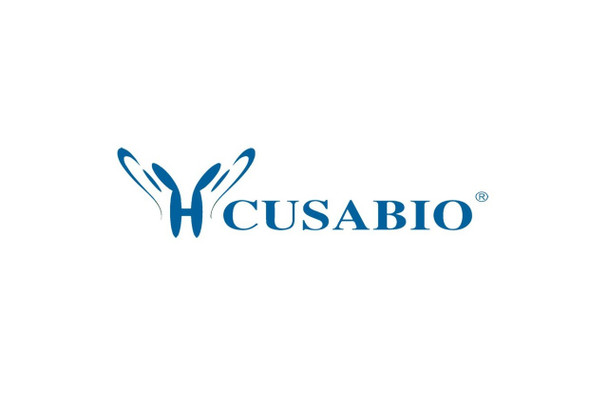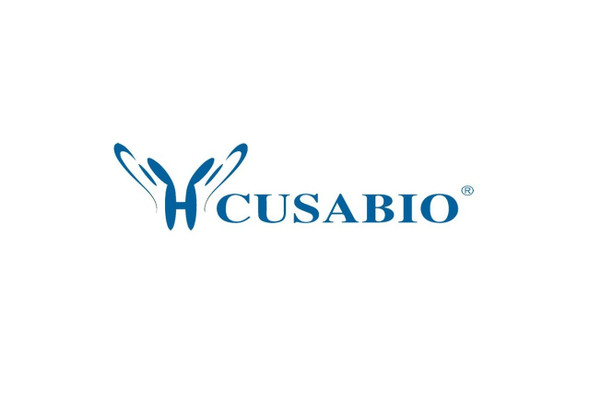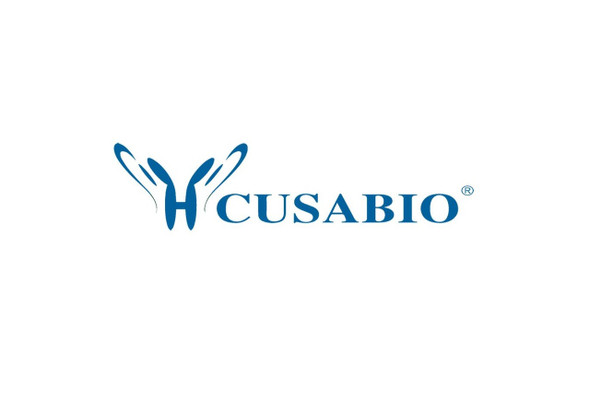Cusabio Human Recombinants
Recombinant Human Carbonic anhydrase 9 (CA9), partial | CSB-EP614990HU
- SKU:
- CSB-EP614990HU
- Availability:
- 13 - 23 Working Days
Description
Recombinant Human Carbonic anhydrase 9 (CA9), partial | CSB-EP614990HU | Cusabio
Alternative Name(s): Carbonate dehydratase IXCarbonic anhydrase IX ;CA-IX ;CAIXMembrane antigen MNP54/58NRenal cell carcinoma-associated antigen G250 ;R;CC-associated antigen G250pMW1
Gene Names: CA9
Research Areas: Metabolism
Organism: Homo sapiens (Human)
AA Sequence: DLPSEEDSPREEDPPGEEDLPGEEDLPGEEDLPEVKPKSEEEGSLKLEDLPTVEAPGDPQEPQNNAHRDKEGDDQSHWRYGGDPPWPRVSPACAGRFQSPVDIRPQLAAFCPALRPLELLGFQLPPLPELRLRNNGHSVQLTLPPGLEMALGPGREYRALQLHLHWGAAGRPGSEHTVEGHRFPAEIHVVHLSTAFARVDEALGRPGGLAVLAAFLEEGPEENSAYEQLLSRLEEIAEEGSETQVPGLDISALLPSDFSRYFQYEGSLTTPPCAQGVIWTVFNQTVMLSAKQLHTLSDTLWGPGDSRLQLNFRATQPLNGRVIEASFPAGVDSSPR
Source: E.coli
Tag Info: N-terminal GST-tagged
Expression Region: 64-399aa
Sequence Info: Partial
MW: 63.8 kDa
Purity: Greater than 90% as determined by SDS-PAGE.
Relevance: Reversible hydration of carbon dioxide. Participates in pH regulation. May be involved in the control of cell proliferation and transformation. Appears to be a novel specific biomarker for a cervical neoplasia.
Reference: Cloning and characterization of MN, a human tumor-associated protein with a domain homologous to carbonic anhydrase and a putative helix-loop-helix DNA binding segment.Pastorek J., Pastorekova S., Callebaut I., Mornon J.-P., Zelnik V., Opavsky R., Zat'Ovicova M., Liao S., Portetelle D., Stanbridge E.J., Zavada J., Burny A., Kettmann R.Oncogene 9:2877-2888(1994)
Storage: The shelf life is related to many factors, storage state, buffer ingredients, storage temperature and the stability of the protein itself. Generally, the shelf life of liquid form is 6 months at -20?/-80?. The shelf life of lyophilized form is 12 months at -20?/-80?.
Notes: Repeated freezing and thawing is not recommended. Store working aliquots at 4? for up to one week.
Function: Reversible hydration of carbon dioxide. Participates in pH regulation. May be involved in the control of cell proliferation and transformation. Appears to be a novel specific biomarker for a cervical neoplasia.
Involvement in disease:
Subcellular Location: Nucleus, Nucleus, nucleolus, Cell membrane, Single-pass type I membrane protein, Cell projection, microvillus membrane, Single-pass type I membrane protein
Protein Families: Alpha-carbonic anhydrase family
Tissue Specificity: Expressed primarily in carcinoma cells lines. Expression is restricted to very few normal tissues and the most abundant expression is found in the epithelial cells of gastric mucosa.
Paythway:
Form: Liquid or Lyophilized powder
Buffer: If the delivery form is liquid, the default storage buffer is Tris/PBS-based buffer, 5%-50% glycerol. If the delivery form is lyophilized powder, the buffer before lyophilization is Tris/PBS-based buffer, 6% Trehalose, pH 8.0.
Reconstitution: We recommend that this vial be briefly centrifuged prior to opening to bring the contents to the bottom. Please reconstitute protein in deionized sterile water to a concentration of 0.1-1.0 mg/mL.We recommend to add 5-50% of glycerol (final concentration) and aliquot for long-term storage at -20?/-80?. Our default final concentration of glycerol is 50%. Customers could use it as reference.
Uniprot ID: Q16790
HGNC Database Link: HGNC
UniGene Database Link: UniGene
KEGG Database Link: KEGG
STRING Database Link: STRING
OMIM Database Link: OMIM









